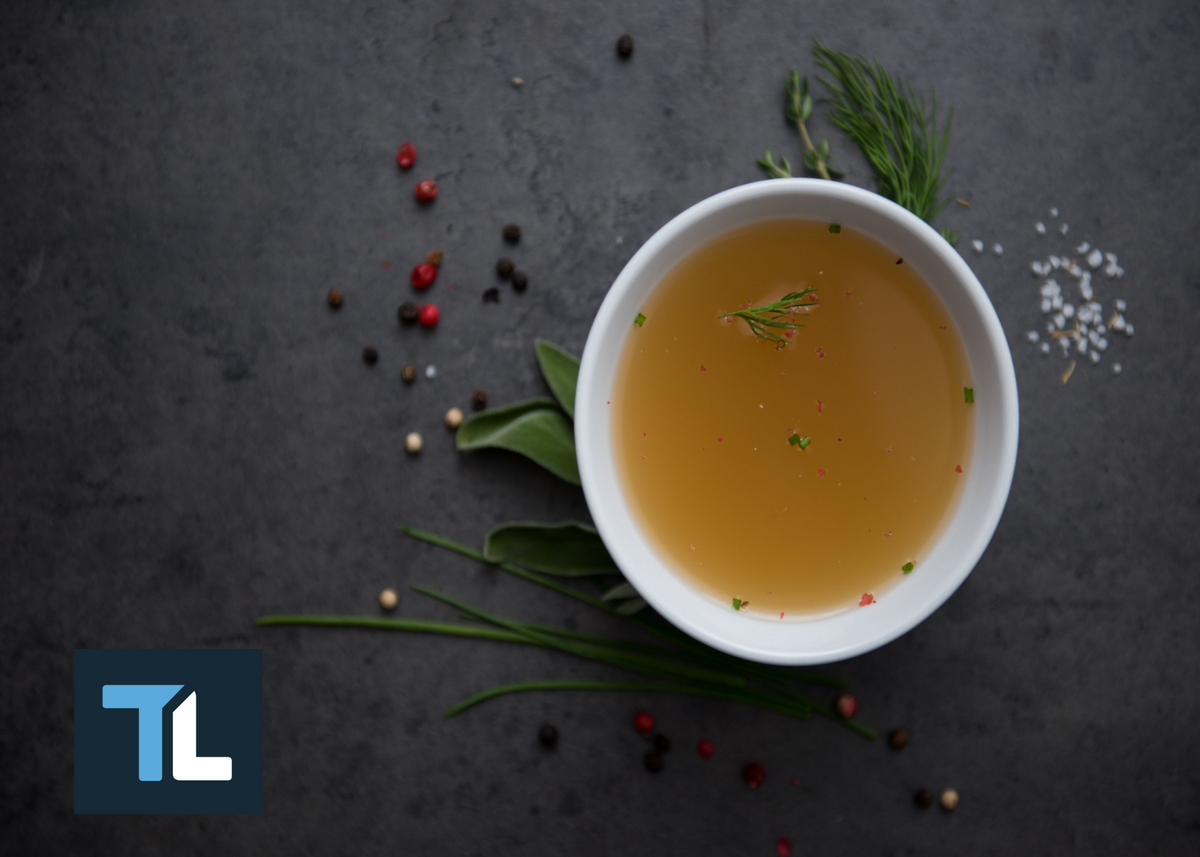Bone Broth Diet: Benefits, Side Effects and More

Bone Broth Diet: Benefits, Side Effects and More
Many diets today promise benefits or a quick fix—some plans boast improved joint health (and reduced joint pain), healthy skin, and improved blood sugar. One you may heard of, the bone broth diet, claims to promote joint health, improved gut health, and a quick way to weight loss. But is the bone broth diet plan right for you? Here, you can explore potential benefits and drawbacks. Read on to learn if bone broth fasting is right for you.
What Is the Bone Broth Diet?
The Bone Broth Diet is based on a 21-day diet plan and book of the same name created by Kellyann Petrucci. Petrucci claims the diet, which centers around eating low-carb, paleo meals supplemented with bone broth, is designed to aid in weight loss, improve gut health, reduce inflammation, and function as a detox. [1]
On this meal plan, you'll drink bone broth, follow the paleo diet and incorporate intermittent fasting. You can find bone broth for purchase (often as dehydrated bone broth) or make your own.
Bone broth is a liquid made from brewed animal bones and ligaments. If you opt to make your own bone broth, you'll be simmering animal bones for over 24 hours in an attempt to release minerals from the bone marrow. The bones and connective tissue contain vitamins and nutrients, such as magnesium, calcium and phosphorus, as well as collagen.
What Can I Eat on the Bone Broth Diet?
There are now other companies that offer bone broth diet plans, and options that range from 7 to 21 days, which you may be able to find at health food stores. The 21-day plan involves avoiding added sugars and artificial sweeteners, intermittent fasting and following a low-carb, paleo-inspired diet.
For five non-fasting days, you will eat foods based on the paleo diet: primarily fish, poultry, meat, whole foods such as scrambled eggs, healthy fats and non-starchy vegetables and, of course, bone broth. The other two days are mini fasting days, where you drink cups of bone broth throughout the day, and can also drink unlimited liquids (including herbal tea). If you so choose, you can consume minimal amounts of certain foods containing healthy fats and protein.
Does the Bone Broth Diet Work?

Studies have found that eating soup—particularly broth—can help to increase feelings of fullness and may lead to reduced belly fat. [2] Tossing and turning resulting in not getting enough sleep? Research has found that thanks to the amino acid glycine found in bone broth, it may help aid sleep. [3]
But Petrucci claims that by following her bone broth diet, results will include improved digestive health and weight loss of up to 15 pounds and 4 inches in 21 days. However, there are no studies that back this up. And, typically crash diets will not help you lose weight in the long run.
While in the short-term you may see lower numbers on the scale, you’re not doing anything to benefit your health. The lower numbers on the scale you’re seeing are likely coming from loss of water or lean muscle mass, and according to clinical nutrition experts, you’ll gain that weight back, or even additional weight, when you return to your previous diet. [4]
What are the Health Benefits of the Bone Broth Diet?
Adding bone broth to your diet may have benefits including getting added essential amino acids in your diet. Connective tissues and bones contain calcium, so consuming bone broth may help to boost bone health. And, depending on the type, one cup of bone broth can contains 9 to 11 grams of protein. [5]
Plus, avoiding processed foods and added sugar whenever possible can be a beneficial dietary change.
Other claims include that the collagen in the bone broth may help in maintaining lean muscle mass and helping to reduce joint pain, as well as supporting healthy hair, skin and nails, though there has not been much research done to support these claims when it comes to bone broth specifically. And, one study found that benefits of amino acids in bone broth are less than those in collagen supplements. [6]
What are the Side Effects of the Bone Broth Diet?
Following this meal plan can cause you to lose out on daily nutrient needs. If you're training for something, you typically need to follow a meal plan that contains a higher calorie intake than normal, and a bone broth diet plan required intermittent fasting and restricts the amount of calories you can eat. Losing weight quickly And while intermittent fasting is generally safe, it may not be right for everyone [7].
Calorie restriction or a focus on weight loss can put someone at higher risk for eating disorders. Additionally, the number on the scale doesn't reflect your health, and shouldn't be the main thing you focus on.
Who Should Try the Bone Broth Diet?
The bone broth diet can be very useful to anyone looking at increasing the amount of protein they consume and may even help people maintain their healthy diet as compared with a regular diet. The following diets will help you maintain healthy weight and improve skin health. If this diet doesn't suit you, then you can try a 7 day Bone Broth diet and see how you feel. Many people have tried incorporating bone broth into their diet plan. But bone broth doesn't suit all people.
The bottom line: Drastically changing your diet or trying out a new fad diet might not be the best option for your health. And any weight that you may lose during a short-term diet will likely come back once you resume your normal diet. Remember, before starting any diet be sure to speak with a registered dietitian or your licensed healthcare practitioner.









